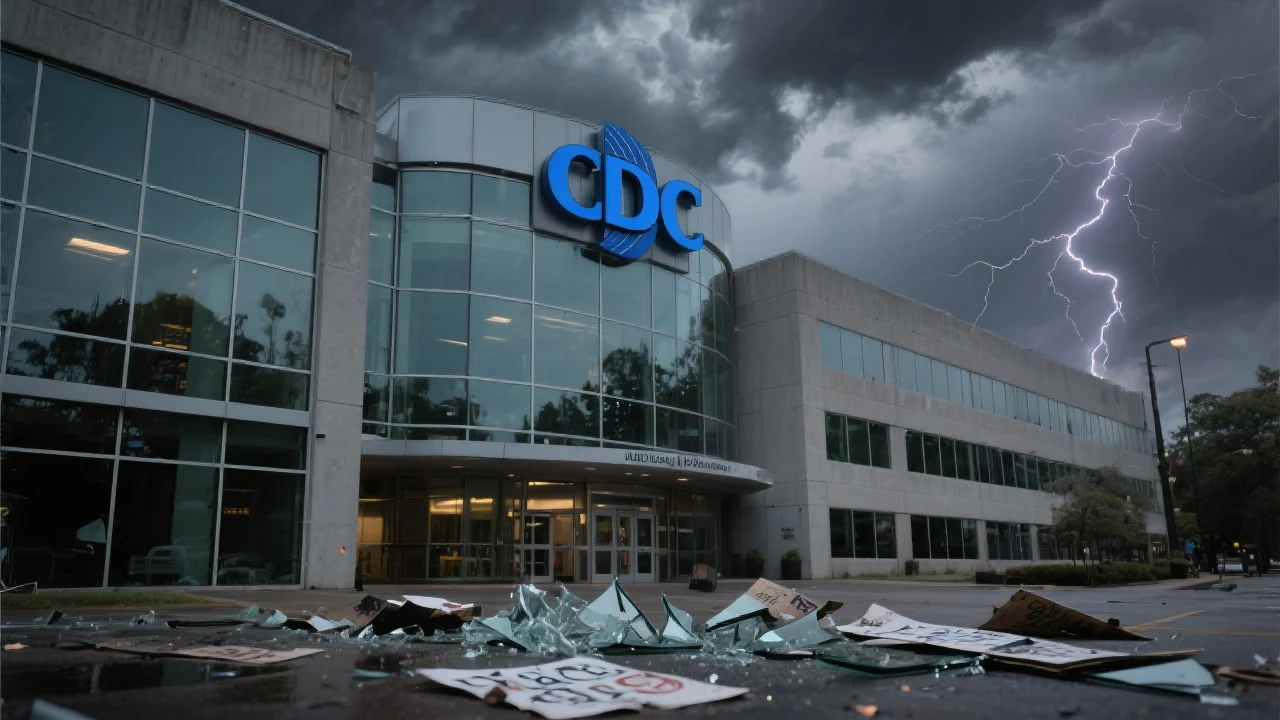A Power Struggle at the Heart of U.S. Public Health
The Centers for Disease Control and Prevention, the nation’s signature public health authority, is unraveling under a wave of leadership purges tied to Health and Human Services Secretary Robert F. Kennedy Jr. On Wednesday, just one month into her tenure, CDC Director Susan Monarez was abruptly fired after she reportedly refused to back Kennedy’s controversial vaccine policies. The White House confirmed her dismissal, though her lawyers called the firing “legally deficient” and said she would not step down voluntarily.

The ouster is the most dramatic move yet in Kennedy’s reshaping of America’s health institutions, and it follows his earlier decision to purge the advisory committee that determines CDC vaccine policy.
Resignations Shake the Agency
Monarez’s removal triggered a cascade of resignations among CDC leadership. Four senior officials — including Dr. Debra Houry, Dr. Daniel Jernigan, Dr. Demetre Daskalakis, and Dr. Jennifer Layden — stepped down nearly simultaneously, denouncing what they described as the “weaponization of public health” for political ends.
Their departures leave gaping holes in the agency’s expertise at the very moment the U.S. heads into respiratory virus season. “The CDC is being decapitated,” said Dr. Robert Steinbrook of Public Citizen. “This is an absolute disaster for public health”.
Vaccine Policy Backlash
Kennedy, who has long questioned the safety of vaccines, recently announced that the CDC will scale back access to updated COVID-19 vaccines, limiting recommendations to older adults and those at high risk. At the same time, he terminated government funding for 22 mRNA vaccine projects and hinted at reviving the debunked claim that vaccines may be linked to autism CNN.
These shifts defy the overwhelming body of scientific evidence affirming vaccine safety, and they put public health on a collision course with politics. Pediatric experts, such as the American Academy of Pediatrics, are already urging parents to vaccinate young children against COVID-19, directly contradicting Kennedy’s stance.
Political Fallout in Washington
The firing of Monarez has provoked fierce criticism in Congress. Democratic Senator Patty Murray said RFK Jr. must be removed, calling him a “dangerous man determined to abuse his authority to act on truly terrifying conspiracy theories” as per Newsweek. Even some Republicans have bluntly mocked the direction of U.S. health policy, suggesting Kennedy belongs in Trump’s inner circle of personal wellness advisers rather than at the helm of HHS.
A Climate of Fear Inside the CDC
The crisis is unfolding against the backdrop of a deadly shooting at CDC headquarters earlier this month, an attack linked to anti-vaccine resentment. Employees now speak openly about fear, disillusionment, and exhaustion. One longtime official put it bluntly: “This is what happens when leadership feeds conspiracies: lives are lost, expertise is driven out, and crises multiply.”
What Comes Next
With Monarez gone, Kennedy and allies appear to hold near-complete control over the CDC and broader public health apparatus. For critics, this marks the clearest sign yet that science, once the baseline for American health policy, is being subordinated to political loyalty and ideology. As a grim respiratory season looms, Americans face a CDC hobbled by mistrust, diminished expertise, and policies increasingly at odds with established medicine.
Kennedy promises he is “restoring trust.” For many in the medical community, however, trust is exactly what is collapsing.
